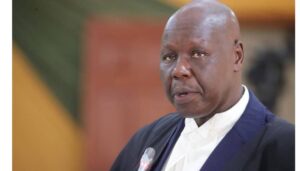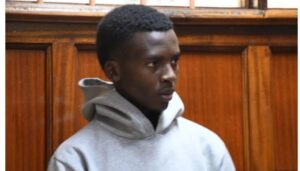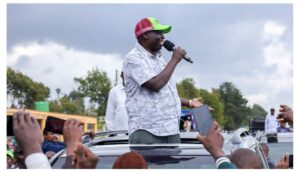William Ruto now wants Supreme Court to strike out affidavits filed by dissenting IEBC commissioners
William Ruto now wants Supreme Court to strike out all affidavits filed by the individual IEBC commissioners in the president petition case.
President-Elect William Ruto through his legal team says individual IEBC commissioners cannot be enjoined as respondents.
Independent Electoral and Boundaries Commission (IEBC) commissioners Wafula Chebukati, Juliana Cherera, Abdi Guliye, Boya Molu, Justus Nyang’aya, Francis Wanderi, and Irene Massit each filed their petitions in Raila Odinga’s case challenging election results.
The IEBC is divided into two groups, which pit Chebukati, Guliye, and Molu against Cherera, Wanderi, Massit, and Nyang’aya. The latter asserts that the election of August 9 was fraudulent since some elements of the electoral procedure were opaque.
Chebukati-led side alleges that the dissenting four commissioners who disowned the presidential results connived to subvert the will of the people.
William Ruto’s lawyer Prof Kithure Kindiki and United Democratic Alliance (UDA) Director of Campaigns Josphat Nanok now wants affidavits by the commissioners struck off.
Kindiki and Nanok claimed in a motion submitted pursuant to an urgent certificate dated August 27, 2022, that the six could not be added individually as respondents in the Azimio suit since the August 9 General Election was conducted by the IEBC and not by individual commissioners.
Kindiki believes that IEBC vice-chair Cherera, Massit, Wanderi, and Nyang’aya are at odds with IEBC Chairman Wafula Chebukati and plan to use his response to promote charges, fresh assertions, and innuendoes that are only meant to prejudice Ruto.
According to Kindiki, the four commissioners are proxies who were enjoined so as to produce second-tier petitioners and are posing as respondents against Article 140 of the constitution.
“The timeline to respond is for all respondents to file responses at the same time. Consequently, the 9th respondent [Ruto] will be denied any opportunity to answer the second-tier accusations made by the 3rd to 6th respondents. The 9th respondent’s right to a fair trial as conferred under Article 25 (C) will be irreversibly compromised,” said Kindiki.
In his affidavit, Nanok averred that Article 140 envisages a precise and concise issue that challenges the election of the President-elect and Deputy President-elect and that complaints between commissioners should not be included in such a petition.
“I am aware that the 3rd to 6th respondents are uncomfortable with the electoral victory of the 9th respondent [Ruto]; indeed, these commissioners have publicly stated their opposition to the 9th respondents’ victory,” said Nanok.
He went on, “Accordingly, the four commissioners are in true sense petitioners and or proxies of the petitioners ingeniously included to be part of the respondents so as to compromise the 9th respondent’s defence.”
The respondents, 3rd to 8th, must be struck out and any pleadings by them expunged from the record, according to Nanok.
Also read,
Raila granted permission to use DCI forensic report in his Supreme Court petition
Attorney General Kihara Kariuki responds on the presidential petition
IEBC explains why presidential votes differed from those of other seats but does it add up
Follow us




